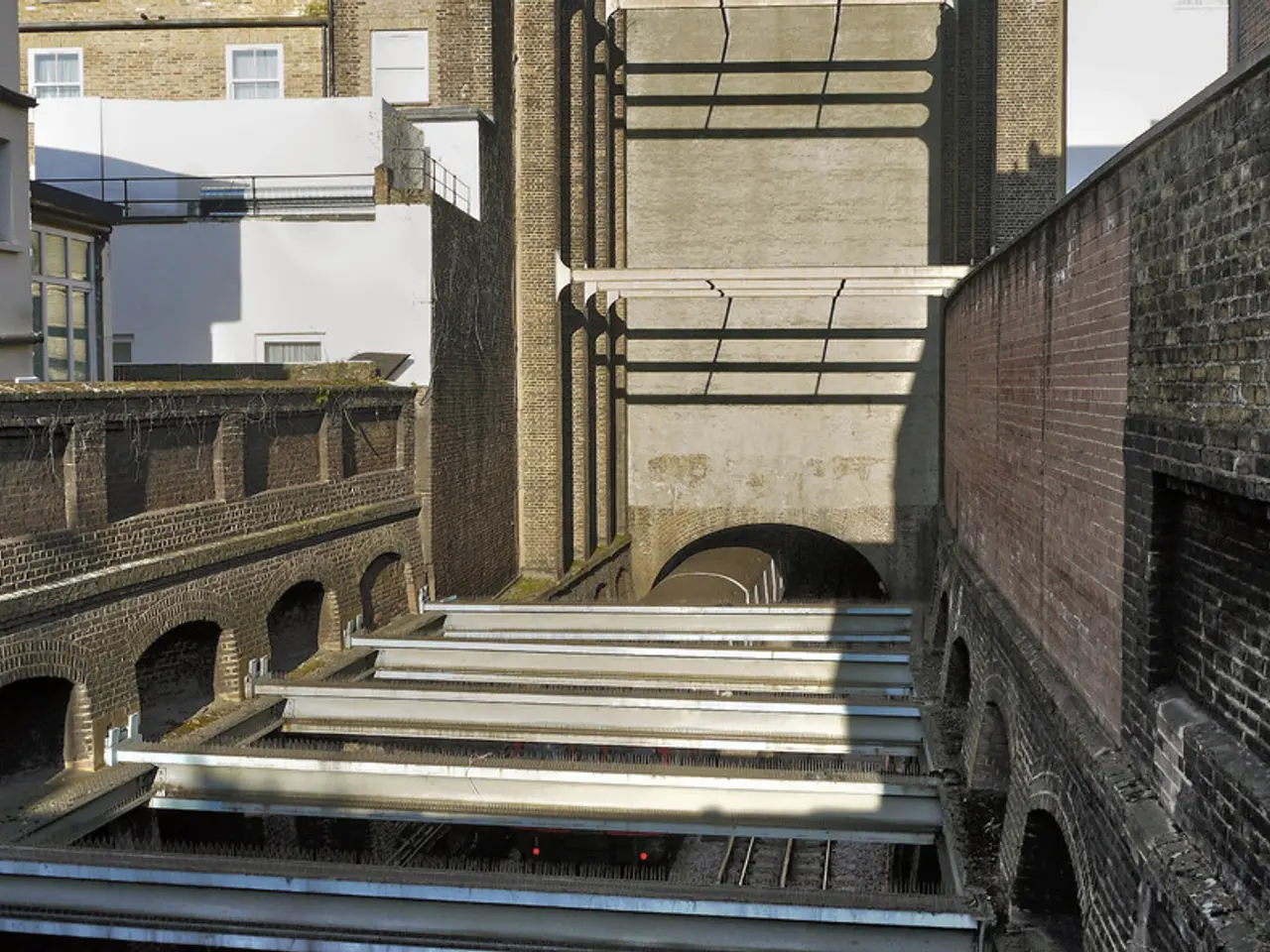Solar panel implementation mandate failed in parliament under Sunshine Bill proposal
The UK is considering a significant shift towards renewable energy with the "Sunshine Bill," a proposal that aims to make solar panels a standard feature in new homes. The Bill, initially proposed by Liberal Democrat MP Max Wilkinson, has received widespread support in Parliament but is currently suspended due to insufficient MPs present for a vote.
The Sunshine Bill, also known as the New Homes (Solar Generation) Bill, mandates that all new-build homes must install solar photovoltaic systems covering 40% of the building’s ground floor area. This legislation, if passed, could potentially accelerate residential solar adoption in the UK, aligning with the government's ambitious solar capacity targets.
The government aims to reach 47 GW of operational solar capacity by 2030, with rooftop solar playing a major role. The Sunshine Bill, therefore, complements these objectives, bolstering solar deployment on new homes as part of a broader transition to clean energy at the building level.
However, the Bill has faced opposition, with concerns raised about potential adverse effects on the housing market. Critics argue that the installation of solar panels could make houses less affordable due to the estimated cost of adding solar panels, ranging from £5,000 to £10,000. They also worry about delays in construction, increased complexity in building processes, and potential disruptions to local authority planning.
The Housing Minister, Matthew Pennycook, has expressed similar concerns about potential adverse impacts on housing supply, construction industry development, and local authority planning. Yet, despite these concerns, the government has reaffirmed its dedication to sustainable housing through its upcoming policy, the Future Homes Standard, set to be implemented in 2025.
The Future Homes Standard promises low-carbon heating and high-quality building fabric, signalling a commitment to greener housing solutions, even without the passage of the Sunshine Bill.
Supporters of the Sunshine Bill, including groups like the Campaign to Protect Rural England (CPRE), view the delay as a pause rather than a defeat, encouraging further lobbying for the Bill’s passage in the near future. They point to data from local developer Newland Homes showing customers in their solar-equipped homes could save up to £2,000 annually on energy bills.
The adjournment of the Sunshine Bill until July 2025 suggests the conversation about mandatory solar panels on new homes is ongoing. With 82% of the public supporting rooftop solar on new homes, it seems the UK is moving towards a future where solar panels are a standard feature of new home construction, following in the footsteps of regions like the European Union and U.S. states such as California.
In summary, the Sunshine Bill has strong parliamentary support but is temporarily paused and expected to be debated again soon. Its successful passage will mandate solar installation on all new homes in the UK, potentially accelerating residential solar adoption alongside governmental solar capacity plans. This legislation fits within a broader international movement making solar panels a standard feature of new home construction.
- The Sunshine Bill, also known as the New Homes (Solar Generation) Bill, is a proposal that aims to make solar panels a standard feature in new homes in the UK.
- If passed, the Bill could potentially accelerate residential solar adoption, aligning with the government's ambitious solar capacity targets.
- The government aims to reach 47 GW of operational solar capacity by 2030, with rooftop solar playing a major role in achieving this goal.
- The Bill, therefore, complements these objectives, bolstering solar deployment on new homes as part of a broader transition to clean energy at the building level.
- Critics argue that the installation of solar panels could make houses less affordable due to the estimated cost of adding solar panels, ranging from £5,000 to £10,000.
- The Housing Minister, Matthew Pennycook, has expressed similar concerns about potential adverse impacts on housing supply, construction industry development, and local authority planning.
- Supporters of the Sunshine Bill, including groups like the Campaign to Protect Rural England (CPRE), view the delay as a pause rather than a defeat, encouraging further lobbying for the Bill’s passage.
- They point to data from local developer Newland Homes showing customers in their solar-equipped homes could save up to £2,000 annually on energy bills.
- With 82% of the public supporting rooftop solar on new homes, it seems the UK is moving towards a future where solar panels are a standard feature of new home construction.
- This trend is not unique to the UK; regions like the European Union and U.S. states such as California have already embraced similar policies.
- The adjournment of the Sunshine Bill until July 2025 suggests the conversation about mandatory solar panels on new homes is ongoing, with policy-and-legislation, politics, and general-news closely following its progress.




